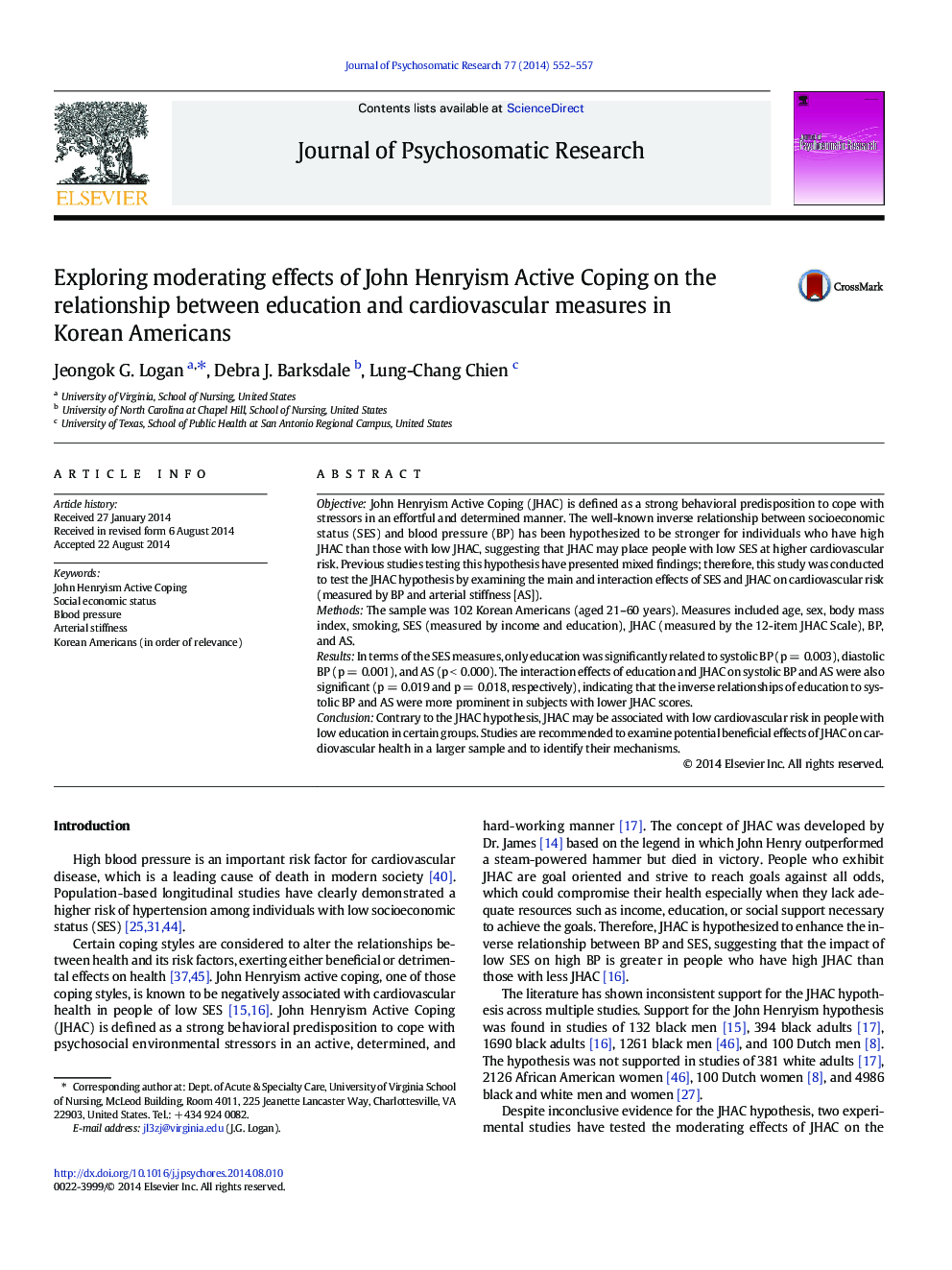| کد مقاله | کد نشریه | سال انتشار | مقاله انگلیسی | نسخه تمام متن |
|---|---|---|---|---|
| 949451 | 926751 | 2014 | 6 صفحه PDF | دانلود رایگان |

• We tested moderating effects of John Henryism Active Coping (JHAC).
• The group with lower education had higher BP and higher arterial stiffness.
• The group with lower education and lower JHAC scores had highest systolic BP and highest arterial stiffness.
ObjectiveJohn Henryism Active Coping (JHAC) is defined as a strong behavioral predisposition to cope with stressors in an effortful and determined manner. The well-known inverse relationship between socioeconomic status (SES) and blood pressure (BP) has been hypothesized to be stronger for individuals who have high JHAC than those with low JHAC, suggesting that JHAC may place people with low SES at higher cardiovascular risk. Previous studies testing this hypothesis have presented mixed findings; therefore, this study was conducted to test the JHAC hypothesis by examining the main and interaction effects of SES and JHAC on cardiovascular risk (measured by BP and arterial stiffness [AS]).MethodsThe sample was 102 Korean Americans (aged 21–60 years). Measures included age, sex, body mass index, smoking, SES (measured by income and education), JHAC (measured by the 12-item JHAC Scale), BP, and AS.ResultsIn terms of the SES measures, only education was significantly related to systolic BP (p = 0.003), diastolic BP (p = 0.001), and AS (p < 0.000). The interaction effects of education and JHAC on systolic BP and AS were also significant (p = 0.019 and p = 0.018, respectively), indicating that the inverse relationships of education to systolic BP and AS were more prominent in subjects with lower JHAC scores.ConclusionContrary to the JHAC hypothesis, JHAC may be associated with low cardiovascular risk in people with low education in certain groups. Studies are recommended to examine potential beneficial effects of JHAC on cardiovascular health in a larger sample and to identify their mechanisms.
Journal: Journal of Psychosomatic Research - Volume 77, Issue 6, December 2014, Pages 552–557